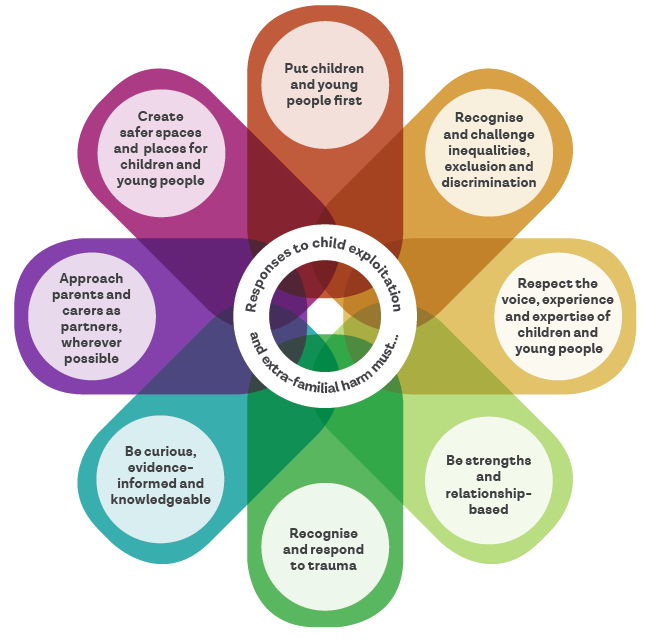The Tackling Child Exploitation (TCE) Support Programme has launched Practice Principles to shape and inform the work of multi-agency professionals responding to child exploitation and extra-familial harm.
Experiencing extra familial harm and exploitation can have a devastating impact on children, their families and the wider community. The Practice Principles, and supporting resources, provide a way for professionals and agencies to navigate the complexities of these types of harm and work together to protect and support children and young people.
Grounded in research, the Practice Principles have been informed by practical learning and expertise from professionals and the lived experiences of children, young people, parents and carers. They are focused on ways of working for anyone involved in responding to child exploitation and extra-familial harm and are designed to allow multi-agency professionals to connect and collaborate effectively.

The Practice Principles offer a compass to help navigate a complex landscape.
Commissioned by the Department for Education, with support from the Home Office, Ministry of Justice, and Department of Health and Social Care, the Principles have been developed by Research in Practice, in partnership with The Children’s Society and the University of Bedfordshire’s Safer Young Lives Research Centre. The Practice Principles are referenced within the Government’s ambition to reform children’s social care, set out in its Implementation Strategy, Stable Homes Build on Love.
Dez Holmes, Director of Research in Practice said:
Exploitation and extra-familial harm can have a devastating impact on people’s lives, and present complex challenges to professionals. By focusing on key ingredients such as relationships, equality and partnership working, we hope these collaboratively-developed Principles can support colleagues at all levels to provide the best possible support to children, young people and those who care about them.
Anna Racher, Assistant Director of the TCE Support Programme, describes the development of the Principles while balancing high support and high challenges in a dedicated article:
The Practice Principles remind us of what we already know: that children and young people are not responsible for the harms that they face; that behaviour is often a method of communicating, that families, social networks and social contexts matter, and that structural inequalities amplify harm. The Principles promote a holistic response that recognises the potential presence of different and multiple forms of harm in children and young people’s lives.

